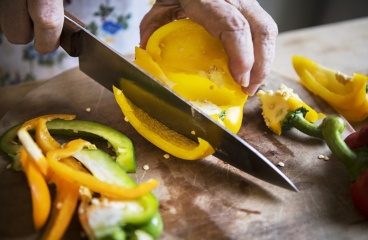What is a low-iodine diet?
A low-iodine diet lowers the amount of iodine in your body. You'll avoid foods that contain a lot of iodine. These include iodized salt, seafood, dairy foods, and many processed foods. A low-iodine diet isn't the same as a low-salt diet.
Why is it used?
A low-iodine diet helps prepare your thyroid gland for a radioactive iodine test or treatment. Your thyroid gland holds most of the iodine in your body. With a low-iodine diet, the amount of iodine in your body goes down. This helps the cells in your thyroid pick up radioactive iodine better during your procedure.
How do you follow a low-iodine diet?
Your doctor may put you on a low-iodine diet for 1 to 2 weeks before your treatment or test. You might continue the diet for a couple of days afterward. Your doctor will give you instructions about what foods to avoid and for how long.
In some cases, you may just avoid vitamins or other supplements. These products often contain small amounts of iodine. In other cases, you may get a list of foods to avoid.
Foods to avoid include:
- Iodized salt.
- Processed, canned, dried, salted, or cured meats and poultry. These include deli meats, bacon, sausage, and hot dogs.
- Nuts and seeds prepared with iodized salt.
- Milk and other dairy foods.
- Milk chocolate and any chocolate foods that contain milk.
- Whole eggs and egg yolks.
- Store-bought grain products like bread, tortillas, and egg noodles.
- Seafood and all seafood products, including shellfish and imitation crab.
- Seaweed, kelp, and any other sea vegetables.
- Foods, drinks, and medicines that contain the food dye FD&C Red No. 3 (erythrosine).
Foods that are okay to eat include:
- Fresh meat and poultry.
- Egg whites.
- Potatoes and rice.
- Homemade breads, cakes, desserts, and tortillas made without iodized salt or high-iodine ingredients like dairy or eggs.
- Fresh or frozen vegetables.
- Dried peas and lentils.
- Fresh or frozen fruits and fruit juices.
- Unsalted nuts and seeds.
- Dark chocolate.


